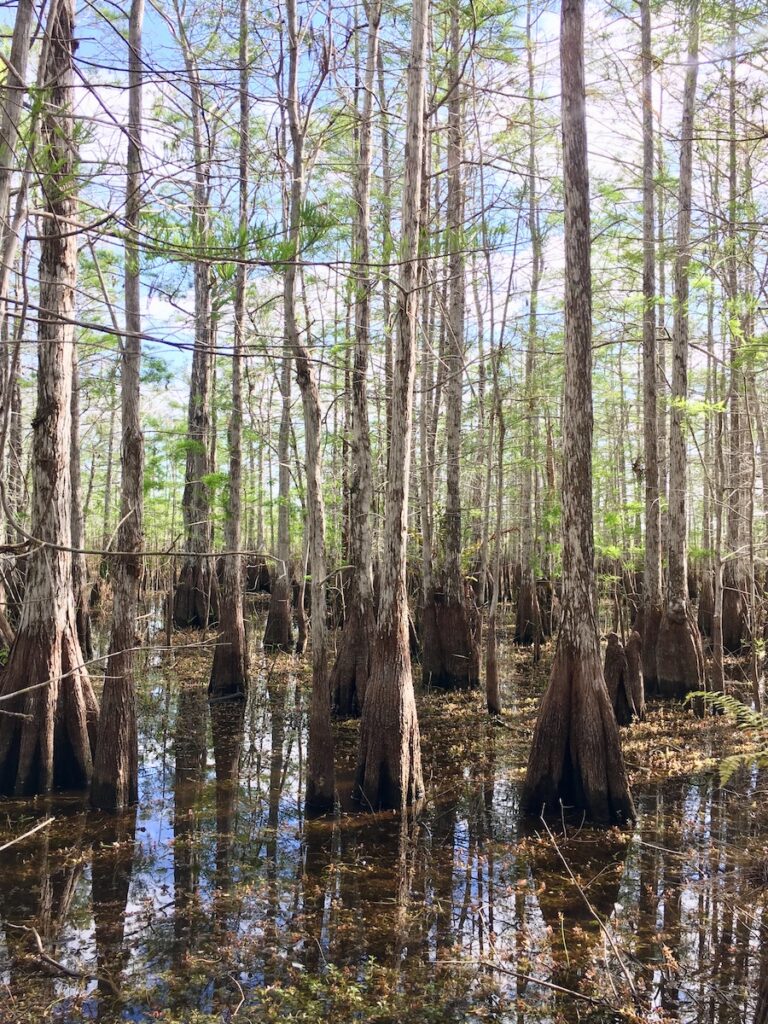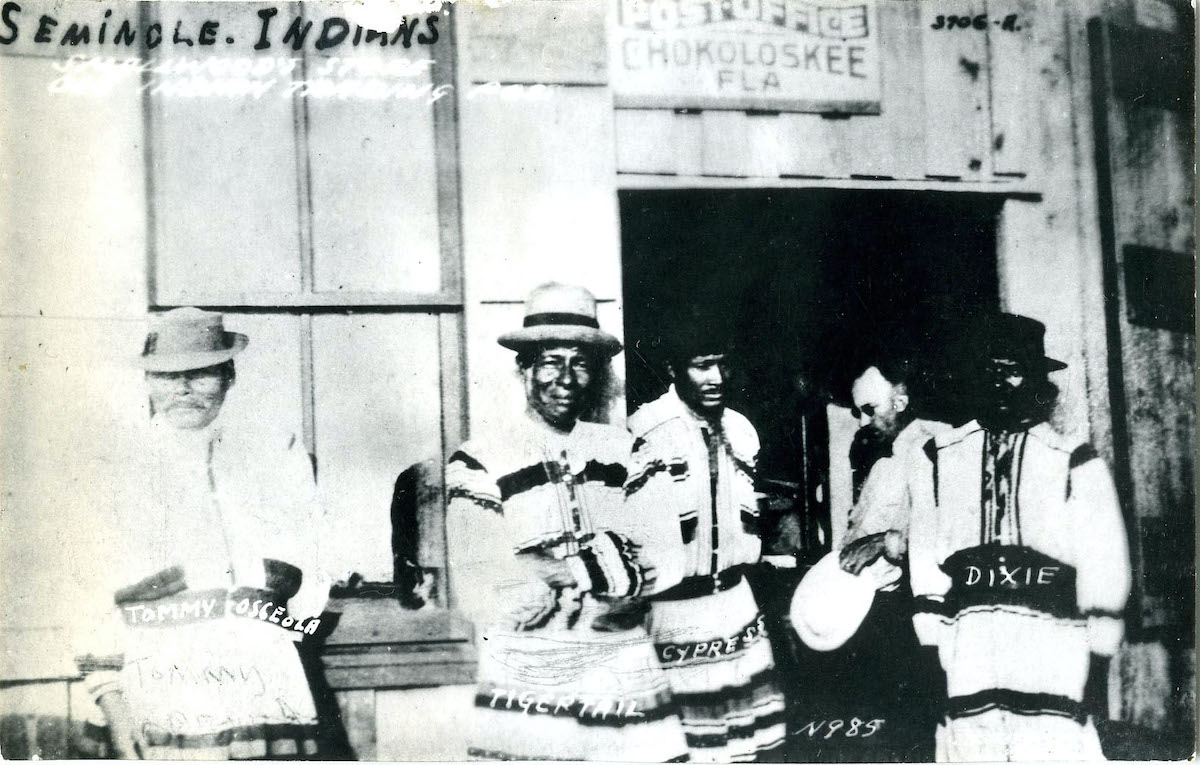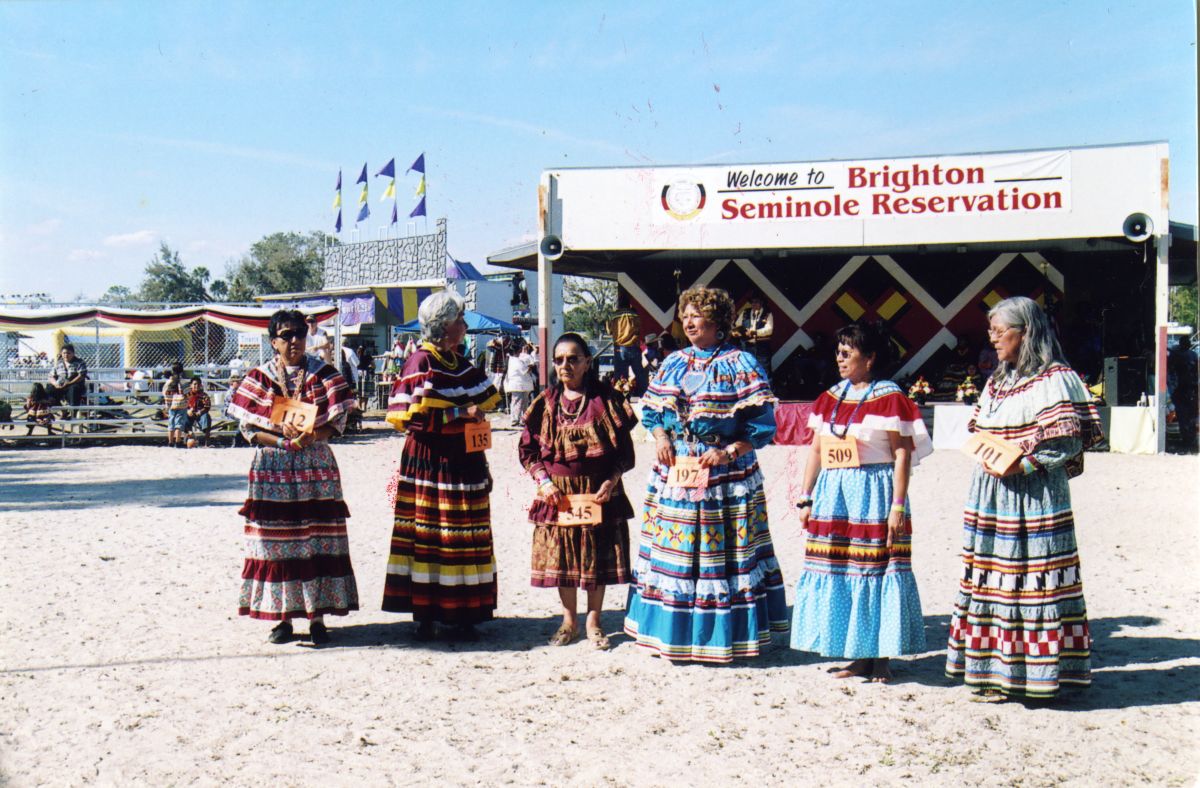
Navigating Hurricane Season
June 1st marks the first official day of the Atlantic hurricane season. Hurricane season brings many changes during our Florida summer and fall, including wet, humid temperatures and inclement weather. But, do you know the best ways to navigate this wild season? If you’re travelling to and within Florida, it is important to know the best ways to prepare and plan for your summer fun. This week, join us to learn more about the 2023 hurricane season, and how to plan and enjoy your fun summer!
In our featured image this week, you can see a view of Lake Okeechobee during Wet Season in 2018. The largest freshwater lake in Florida, Lake Okeechobee is an important ancestral Seminole space. Prior to human intervention in the 1900s, the lake would overflow during the Wet Season and feed the slow-moving river of the Everglades. Although dredging, damming, and canals have changed the lake’s relationship to the rest of the Everglades, it is still an important resource and natural habitat. If you’re interested in visiting Lake Okeechobee this summer, two fantastic options are the Lake Okeechobee Scenic Trail (LOST) or the Lake Okeechobee Battlefield State Historic Park.
What is Hurricane Season?
Hurricane season runs from June 1st through November 30th annually. Marked by wet, humid temperatures, hurricane season is a period with increased probability of severe weather. But, it is also important to note that severe storms can form outside of these dates. So, it is important to stay vigilant and prepared all year long in the Sunshine State. Last year on the blog, at the beginning of Hurricane Season, we outlined some of the weather changes, defined hurricanes, tropical depressions, and storms, and noted shifts in the plant and animal populations. This time, we are focusing on how to be prepared, knowledgeable, and confident during these storm events and throughout the entire season.
This year, the National Oceanic and Atmospheric Association (NOAA) has predicted a “near-normal season.” This includes a higher probability that there will be between 12 and 17 named storms (winds of 39 mph or higher), with 5 to 9 of these becoming hurricanes (74 mph winds or higher.) Of these, 1 to 4 are predicted to become major hurricanes (category 3-5, with winds upwards of 111 mph). While this is considered an average season, it is important to note that these storms can still be devastating.
NOAA predicted the 2022 Hurricane Season to be above-normal, with 14-21 named storms. In the end, there were 14 named storms within the 2022 season. Although it was on the lower end of their above-normal prediction, it was a devastating season for Florida. Hurricane Ian in September 2022 wreaked havoc on the Gulf-side, significantly impacting Fort Myers, Sanibel, Naples, and Fort Myers Beach. Two other major hurricanes, Nicole and Fiona, impacted other areas of Florida and Puerto Rico.
So…I Only Have to Prepare When a Hurricane is Coming?
Hurricane season does not mean that you only need to prepare for hurricanes! Although hurricanes can be one of the most severe weather events during the season, they are by no means the only. Tropical depressions, storms, tornadoes, and flooding are all incredibly dangerous features of hurricane season. Additionally, while the places most typically affected are the Florida coasts, inland areas face their own challenges during severe weather. For example, although a hurricane may be weaker while traveling over land within the state, flooding and tornadoes make even weaker storms very dangerous. Thus, it is important to make sure to be aware of ALL weather warnings, not just hurricane warnings.
Tropical depressions are defined with winds of 38 mph. Tropical storms are the next level up, with winds of 39+ mph. To be deemed a hurricane, storms need winds upward of 74 mph. It is important to note that these numbers only look at wind speed, and can come with a variety of other weather concerns. Tropical storm, tornado, flood watch, and other severe storm warnings are all important factors to consider when planning your summer fun.
Preparation is the key to having a good time this summer. This also means that you can’t start these preparations when you know a hurricane is coming. Although generally you will know a hurricane is coming a few days in advance, this is not enough time to properly prep for these severe storms. We deeply encourage you to consider hurricane and storm preparedness far in advance. If you live in Florida, or are just visiting, it is important to consider the weather in each and every trip you take. Below, you can see a grove of cypress trees during hurricane season in Everglades National Park. Hurricane season also comes with fluctuating water levels, and you can see high water lines on the waterlogged cypress trunks here in this image.

Tips and Tricks for Getting through the Season
Be Prepared and Have a Plan
Preparation is the key to having a fun, and safe, time this season. Planning for all contingencies will help you know the best possible ways to pivot during your trip. Whether you are travelling to Florida, or live here, it is important to know what to do if there is an emergency. What if there is a severe storm during your trip? Make sure to check ahead on cancellation policies for purchased tickets, hotels, or other booked items. If you’re travelling to one of Florida’s parks or nature preserves, check and understand their inclement weather policies so you can be best informed prior to an emergency. For example, during tropical storm and hurricane warnings, Florida State Parks are closed and evacuated, including camping areas. If you were camping, having a back-up plan is incredibly important.
Think Ahead
Part of developing a good plan is thinking ahead. Schedule your daily activities and consider the logistics carefully. Where will you get gas? Do you need to pack your own food or water? How far from your home base will you be travelling? Small considerations like this can make or break your trip.
Be Flexible
What will happen to your plans if a hurricane comes during your vacation or recreation time? Flexibility in your plans is a very good option when considering vacationing in the Sunshine State. Sometimes, this will look like choosing an indoor activity instead of an outdoor activity during heavy rain. Other times, this may look like cancelling your plans to avoid a severe storm. If you are visiting natural areas like Everglades National Park, Big Cypress National Preserve, any of the Seminole Indian Reservations, or other Florida State Parks be aware that some programs, services, and resources may be unavailable last minute due to inclement weather.
Pack Appropriately
Especially if you are travelling inland to more remote areas, make sure to pack appropriately for all kinds of weather. This includes not only for yourself, but keeping an emergency kit and appropriate car kits well stocked and in good condition. If you live in Florida, take hurricane preparation of your home seriously. Create and maintain a well-stocked emergency kit with non-perishable foods, water, flashlights, first aid kits, and other necessities. Determine your need for items like hurricane shutters, and how to best protect your home during a severe storm event. Preparation starts at home, and extends to your recreational activities.
A Wet Season Packing List
Sun Protection
Sun protection does not just mean sunscreen! When possible, also utilize barrier methods, such as long sleeve UV shirts, hats, and sunglasses. Sunscreen is not enough to protect you fully from the harsh Florida sun. So, be intentional and thoughtful when choosing sun protection options.
Raincoat and Extra Clothes
Inclement weather is unpredictable. It may be blazing hot and full sun one moment, and pouring down rain the next. Pack appropriate rain gear as well as sun protection. Additionally, all travelers should pack extra clothes in case of a downpour.
Lots of Water and Snacks
One thing you can’t do without during this season is a lot of water. Additionally, not all places within Florida have potable water access. It is important to plan and make sure that you have enough water during your Florida adventures. What is an appropriate amount for a walk on a boardwalk may not suffice during a couple-mile hike. So, plan for your water needs, check water access, and bring extra if possible. Along with water, salty snacks are a great option to replenish your electrolytes. You will be sweating a lot!
Bring shelf-stable items to replenish those salts lost during activity. Sometimes, you will be able to stop and purchase snacks and refreshment. For example, if you are visiting the Big Cypress Reservation, Sadie’s at Big Cypress Landing offers a plethora of snack options. But, other places, such as recreational areas deep in Big Cypress National Preserve, purchasing snack options is a bit harder. Plan ahead!
An Offline Map and Access to Weather Radar
In the event you lose service, it is important you have a downloaded (offline) or paper map, especially if you are deeper in the remote areas of Florida’s parks and preserves. It is better to be safe! Additionally, we encourage you to download an accurate weather app, one that gives you access to weather radar, so that when you do have service you can monitor inclement weather coming your way.
Your Emergency Plan
If you get caught out in inclement weather, do you have a plan? Before travelling to parks, the beach, and even museums, make sure to write down emergency resources and numbers. With your family or group, make an emergency plan and pack a small emergency and first aid kit for your travels.
Resources to Help
Need some help developing a plan for your family, and resources during and after hurricane season? Follow the links below!
Plan & Prepare with the Florida Division of Emergency Management
Develop a Family Hurricane Preparedness Plan
Author Bio
Originally from Washington state, Deanna Butler received her BA in Archaeological Sciences from the University of Washington in 2014. Deanna moved to South Florida in 2016. Soon, she began working for the Seminole Tribe of Florida’s Tribal Historic Preservation Office. Deanna was the THPO’s Archaeological Collections Assistant from 2017-2021. While at the THPO, Deanna worked to preserve, support, and process the Tribe’s archaeological collection. She often wrote the popular Artifact of the Month series, and worked on many community and educational outreach programs. She lives in Fort Myers, FL with her husband, son, and dog.



